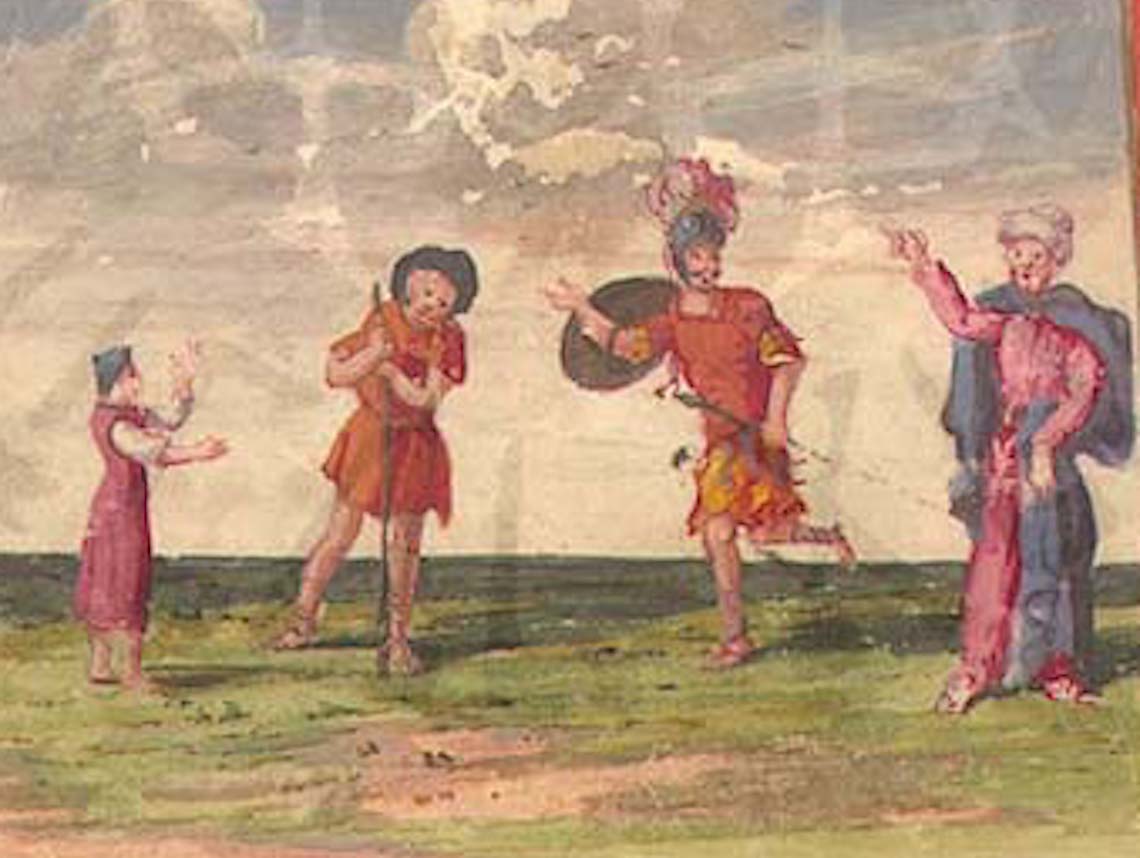
Of course I wanted to be the wise one.
Like most young nerds, I relished the opportunity to read from the haggadah about the son who asks his father the meaning of all the commandments, laws and practices — even down to the law of the afikomen. Recently, the wicked son has become popular — challenge the establishment, speak truth to power, yada yada yada. So much so that many haggadot describe him as the rebellious son, an evocative but not-fully-accurate translation.
But the simple son? Who cares?
Rarely has a major figure in Jewish liturgy been so misunderstood — the son’s simplicity is actually a form of wisdom.
Let us begin by considering his description in Hebrew: tam. Tam can mean simple in the intellectual sense, but it does not need to. It can mean just innocent; in the Talmud, an ox that has never gored anyone is referred to as tam. And just as often, it means something closer to “pure” or even “perfect.” The infamous Red Heifer that is to be sacrificed and its ashes to be used for the purification of the impurity of the dead must also be tamimah (Numbers 19:2-3).
It’s more than animals. The prayer Tziduk Ha-din, said at every Jewish funeral, declares that all the works of God are “perfect” — Tamim. This is not a liturgical accident. In “The Guide for the Perplexed,” Maimonides refers to God as “He who is without matter and is simple to the utmost degree of simplicity” (I, 58).
What is so perfect about simplicity? And thus, what might be so perfect about the simple son?
Well, let us recall that the sons ask questions. And the simple son asks the most perfect question of all: What is this? That might seem simplistic, but if we think about it for a moment, the simple son is trying to determine the essence of the Pesach celebration.
The Greek philosopher Archilochus remarked that “the fox knows many things, and the hedgehog knows one big thing.” Playing off of this, the 20th century British political theorist Isaiah Berlin divided the history of Western thought into two categories: hedgehogs, who view the world through the lens of a single defining idea (examples: Plato, Lucretius, Dante, Pascal, Hegel, Dostoyevsky, Nietzsche, Ibsen, Proust), and foxes, who draw on a wide variety of experiences and for whom the world cannot be boiled down to a single idea (examples: Herodotus, Aristotle, Erasmus, Shakespeare, Montaigne, Moliere, Goethe, Pushkin, Balzac, Joyce).
If we think about it for a moment, the simple son is trying to determine the essence of the Pesach celebration.
The wise son is the omnivore, the fox. He asks, “What is the meaning of all the laws, statutes and commandments of Passover?” We are supposed to tell him everything, down to the smallest details.
The simple son, on the contrary, is the hedgehog. Put another linguistic emphasis on his question: What is this? What is the essential meaning of this?
On my third date with the woman who is now my wife of 13 years, and who is not Jewish, I was explaining to her about the differences between Jewish denominations, and how I never felt fully comfortable in any of them. Then she stopped me and said: “So why is it so important to you? What does it mean to you?” That forced me to think and reflect in a way I never had before. (We got engaged eight months later). It was the simplest question — and the most perfect.
Often, the most perfect questions are those that are the most simple, because they get to the essence of the issue. (This is why Maimonides said that God is perfect, and thus simple: God’s essence is existence, he is completely incorporeal, and God cannot be compared with anything in our world — although fully understanding this is for another time).
If the simplest question is the most profound, however, the rabbis present us with an equally profound irony in the answer that one is supposed to provide to him: “With a strong hand the Almighty led us out from Egypt, from the house of bondage.” This response does not answer the question. The Almighty did not lead us out of Egypt. God led our ancestors out of Egypt. Yes, we are supposed to act as if we personally were liberated from bondage, but why? Why does that help? Is it even possible? What is it supposed to make us do, or feel, or experience? What is this?
Is this interpretation overly generous to the simple son? Hardly; it will be familiar to anyone who has parented a preschooler. At some age — usually around 3 or 4 — the child starts to ask “why?” about everything. Providing an answer simply will generate another “why?” In one of my few successful parenting exercises, I resolved to continue to answer these questions until my daughter got tired of it. But I found it to be very enlightening, not least because the series of “whys?” very often got me to the point where I could not answer the question. I didn’t know.
And not infrequently, when I said I didn’t know, my daughter would ask, “Why?” Why didn’t I know it? Because I had never thought about it deeply enough. What is this?
Thinking it through deeply challenges us: Why do we do this? Why is it important to us? How is it supposed to change us? How does it define and redefine our commitment to God and the Jewish people? We cannot answer these questions in one seder, or one Pesach, or perhaps one whole year. They demand an accounting and understanding not only of our souls, but of our relationship to our people. That takes a long time. Sometimes, often, usually, the simplest questions are the most complex.
Jonathan Zasloff is professor of law at UCLA, where he teaches, among other things, property, international law and Pirkei Avot. He is also a rabbinical ordination candidate at the Alliance for Jewish Renewal.






















 More news and opinions than at a Shabbat dinner, right in your inbox.
More news and opinions than at a Shabbat dinner, right in your inbox.